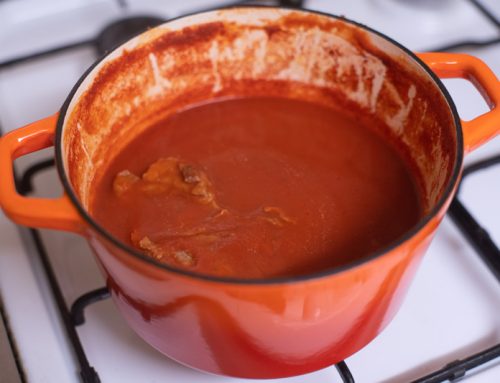Stop buying the unnecessary.
Toss half your stuff, learn contentedness.
Reduce half again.
List 4 essential things in your life, do these first,
stop doing the non-essential.
Clear distractions, focus on each moment.
Let go of attachment to doing, having more.Fall in love with less.
Recently I stumbled upon a new term: minimalism. I have heard this word before used by companies like Leica, Apple or in conjunctions with arts, such as architecture, photography or design. Despite these are the subjects I surround myself with the most, only recently I went into an effort of exploring its meaning a bit deeper.
There are many sources available online, which describe their understanding of this term, but each look at it from slightly different perspective – just like religions try be be different from each other, despite having common (or the same) basic principles.
Oxford Dictionary:
- A movement in sculpture and painting which arose in the 1950s, characterized by the use of simple, massive forms.
- Deliberate lack of decoration or adornment in style or design: ‘his living room was a testament to minimalism’ – source website
Wikipedia:
- “Simple living encompasses a number of different voluntary practices to simplify one’s lifestyle. These may include reducing one’s possessions, generally referred to as Minimalism, or increasing self-sufficiency, for example. Simple living may be characterized by individuals being satisfied with what they have rather than want.[1][2] Although asceticism generally promotes living simply and refraining from luxury and indulgence, not all proponents of simple living are ascetics.[3] Simple living is distinct from those living in forced poverty, as it is a voluntary lifestyle choice. Adherents may choose simple living for a variety of personal reasons, such as spirituality, health, increase in quality time for family and friends, work–life balance, personal taste, frugality, or reducing stress. Simple living can also be a reaction to materialism and conspicuous consumption.” – source website
- Other meanings of minimalism
Popular blogs about minimalism: mnmlist.com, becomingminimalist.com, theminimalists.com, bemorewithless.com
My Approach:
Focus on your passion (if you already found it) and remove distractions as much as possible. If you have not found your passion – remove distractions and listen to your body, learn to meditate, go for a long walk, travel, speak to foreign people, try new things, but one at the time, to get the most out of each. And give yourself time to absorb all feeling, emotions and thoughts accompanying with the thing you’ve tried. Give yourself environment to undisturbedly assess whether the experience you have just gone thru is the one that makes you want to explore it more, or it was just one-off fun and time to move on.
Distractions
Every time you watch an item, you may not realise it, but it makes your brain light up. Items bring memories, feelings and thoughts – unread letters left on the table, souvenirs on the book shelves, books, unwashed dishes in the sink, unsorted clothes cluttered around the room.
You are surrounded by tens of hundred things every day, from the morning till bed time, and each of those things bring different intensity of sparks, which range from stress to happiness to anger in a fillings’ spectrum. You don’t realise it, but its a lot of work and cost plenty of energy to manage it all – energy that could be used to create new ideas or solve problems (consciously or unconsciously), instead is used to bring back feelings that originated long time ago, have been lived thru, forgotten and sit on the shelf and spark your brain to work every time you look at them.
Fact: Lie-detectors (EEG, fMRI, fNIRS and other brain observation techniques) are using brain activity to distinguish truth from lie – if you see a familiar picture, hear sound or feel smell, your brain becomes more active in a certain regions (use more energy, oxygen, creates ionic current within neurons) and these changes are detectable by the machine.Benefits
If you get rid off all items which do not serve you any more, and leave only those you use on a daily basis, such as tools or items you’re passionate about (books, sport equipment, instruments etc) then your focus will increase significantly, because your brain will only process ideas and thought related to the subjects you’re surrounded with. Great example is a typical workshop of a watchmaker – quiet, organised, clean and without distractions – only tools to work and create new ideas.
Apart from being more productive, minimalism brings inner peace, more happiness and less stress and worries. Better control of home budget is another benefit – less temptations to spend money on unnecessary stuff will grow an understanding of what is that you really need. Buying less things will allow to choose better quality items and this naturally will increase a standard of living. Savings may turn to more frequent travels and minimalist standards will save costs of accommodation (no need for all-inclusive 5-star hotel) so money can be spend on local activities, food, explorations and this in turn will widen your horizons, knowledge, experiences and maybe make new friends.
Benefits are endless, but like with everything in life, avoid extremism. Living in a empty room with belongings that can fit into a backpack is good if you traveling a lot. However, if changing house every few months is not your thing, having a quality coffee maker (for coffee lover) or darkroom set up (for photography enthusiast) is the right way to go.

Leave A Comment